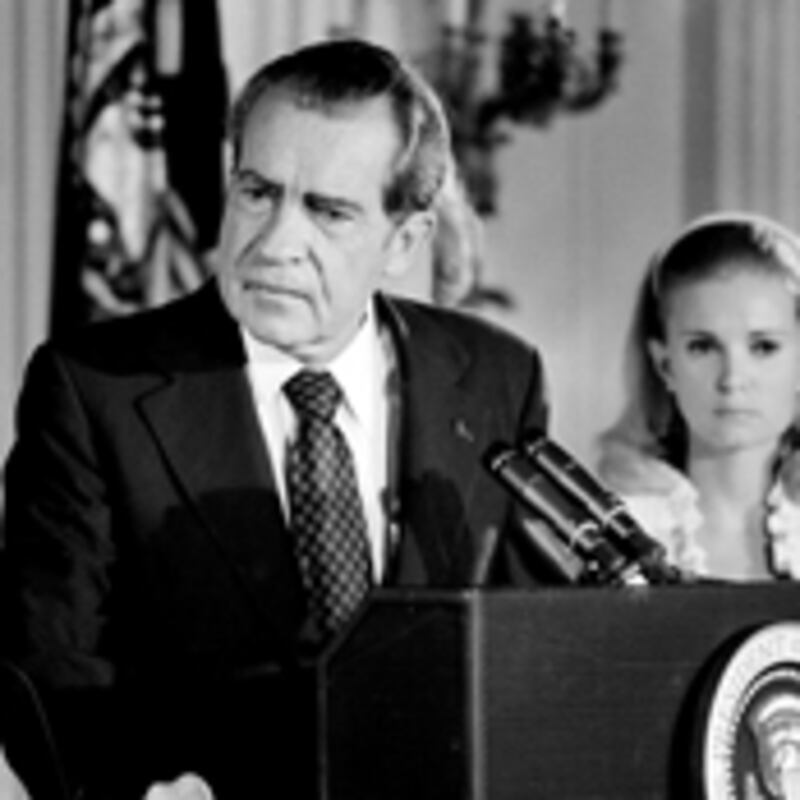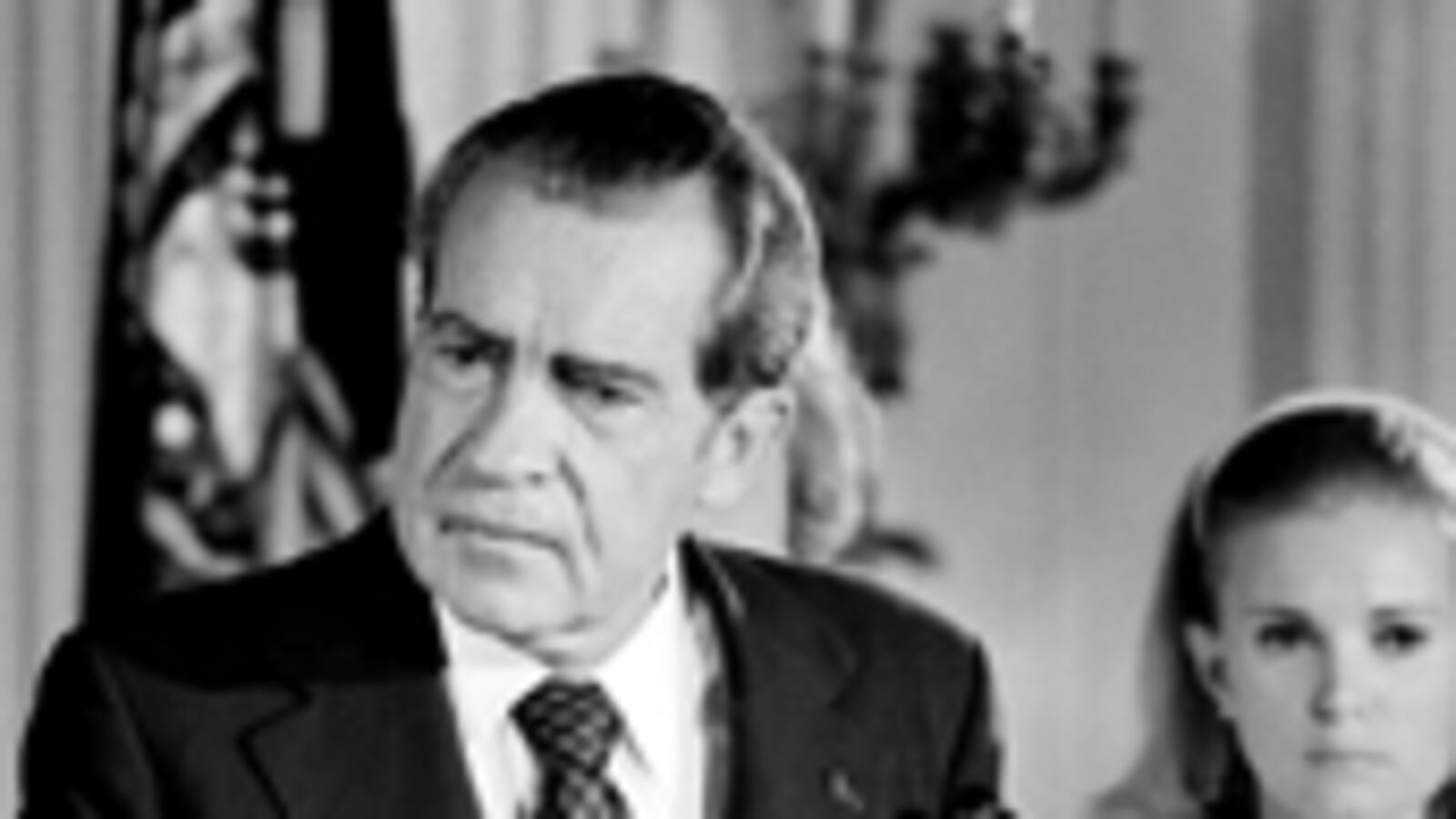
When George W. Bush left the White House in January with the economy in freefall, Americans fighting two wars, and record low approval ratings, it was widely reported that he assured himself time would vindicate his years as president, as it has Harry S. Truman.
The New York Times’ attitude about the Post’s aggressive pursuit of Watergate was patronizing to the point of being contemptuous.
That may seem very far-fetched now, but who knows? The judgments of history are the outcome of a tug-of-war between facts and interpretation that are rendered by those deciding what to make of them. This notion of subjective truth comes to mind because of two media-related, 20th-century items that have been in the news lately on which I have some personal perspective and therefore an urge to shape how they will be viewed over the longer term.
The first involves my friend and onetime boss I.F. Stone, who, 20 years after his death, is being accused, again, of nefarious connections to the KGB at several intervals dating back to the 1930s. The second concerns the revelation by a former New York Times editor that, in August 1972, he received a lead from a Washington bureau reporter that, had it been pursued, would have given the Times an early edge over The Washington Post on the Watergate saga. The headline on the article in the paper last month was “2 Ex-Timesmen Say They Had a Tip on Watergate First.”
As for Izzy Stone, the latest batch of archival material, contained in a book called Spies: The Rise and Fall of the KGB in America (Yale University Press), by John Earl Haynes, Harvey Klehr, and Alexander Vassiliev, has some fragmentary record of Stone’s contacts with the KGB in Washington between 1934 and 1936, a time when anti-fascism and left-wing popular front activities were in vogue. Along with the similarly sparse (and even contradictory) accounts of Stone’s encounters with KGB operatives in later years that have been disclosed previously, cold warriors challenge his status as an icon of independent journalism. This is not the place to dispute these allegations. Stone’s biographers Myra MacPherson in All Governments Lie (Scribner) and D.D. Guttenplan’s just-published American Radical (Farrar, Straus & Giroux) do so with convincing skill in their books and elsewhere.
My viewpoint on the issue comes from firsthand experience with KGB claims, namely that, when I was in Moscow in the 1970s as a correspondent for The Washington Post and regularly met with dissidents such as Andrei Sakharov and Anatoly (now Natan) Sharansky, I was, in fact, a spy. A lot of effort went into that nonsense. There were repeated denunciations in official newspapers, a television documentary showing my wife, baby daughter, and me visiting friends, ostensibly for sinister espionage purposes, and a book from the foreign ministry’s publishing house with a photograph of me over a caption that said I was a CIA handler. On my office wall is a top-secret document a friend found after the collapse of the Soviet Union signed by Yuri Andropov, the head of the KGB, approving a plan to discredit me, but without expulsion, presumably because that would have provoked a retaliatory ouster by the U.S. of a Soviet “journalist” who really was a spy.
For a reporter in the Cold War era to find himself in KGB files can be, at least the way I see it, a source of pride. Whatever Stone’s contacts with KGB operatives were (among others, there were notes about meetings with Ernest Hemingway and the ultra-establishment columnist Walter Lippmann), there is not a single credible shred that any of it altered his journalism, which reflected his deeply held radicalism about issues of the time. Stone made no effort to hide his sympathies. Much of his standing as an iconoclast today comes from the years he published I.F. Stone’s Weekly (1953–72), in which his anti-war, pro-civil-rights, and civil-liberties writing has been validated by events in every way. The self-serving, self-justifying KGB accounts of Stone’s activities (like so many raw FBI surveillance files of the same era) should be treated warily, at best. Finally, Izzy is dead. We’ll never get his version of the matters in question, which would be, if nothing else, wonderfully well-written.
The Watergate story is contained in the memoirs of Robert H. Phelps, God and the Editor: My Search for Meaning at The New York Times (Syracuse University Press). Phelps was the news editor of the Times’ Washington bureau in 1972. Robert M. Smith, a reporter, was leaving the paper to go to Yale Law School and, on his last day, at a lunch with L. Patrick Gray, then the acting head of the FBI, Smith learned of what the newspaper now describes as “explosive aspects of the case, including the culpability of the former attorney general, John Mitchell” and White House involvement. In writing his book, Phelps consulted Smith about the tip and writes that the failure by rhe Times to follow up on Smith’s exciting lead “is a mystery.” The suggestion is that it was merely an inadvertence at the Times that gave the Post an opening to the same story two months later.
There is no mystery to me. At the time, I was attached to The Washington Post’s metro desk and did some sidebars to the main stories by Bob Woodward and Carl Bernstein. In the course of these, I occasionally encountered people from the Times (including Phelps, who, overall, had a distinguished career). Their attitude about the Post’s aggressive pursuit of Watergate was patronizing to the point of being contemptuous.
By contrast, the Post’s local reporters and editors, unaccustomed to the limelight of national stories, threw all their scrappy energy at the case, which began, after all, on a police blotter. This was journalism of the grubby shoe-leather variety, competing with the refined practices of that most august of enterprises, The New York Times’ Washington bureau.
For the early months of Watergate, at least, there was no contest when it came to tracking the scandal. Smith went off to Yale and never looked back. Phelps, his book reports, went on vacation. The balance shifted in 1973, when the great Seymour Hersh joined the bureau and gave Woodward and Bernstein a real run for dominance of the story. In its way, Phelps’ revelation actually does more good than harm to the narrative of the Post’s Watergate triumph. As Woodward said about the episode, “Watergate wasn’t about a tip. It was about extensive reporting and getting information you can put in the paper.”
Historians are arbiters of reputations, which gives them vast power. But their conclusions are only as reliable as the accounts, so often flawed by human nature, from which they are drawn.
Peter Osnos is a senior fellow for media at The Century Foundation. Osnos is the founder and editor at large of PublicAffairs Books. He is vice chairman of the Columbia Journalism Review, a former publisher at Random House, and was a correspondent and editor at The Washington Post.






